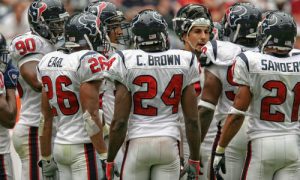With soccer’s 2014 World Cup matches kicking off this week in Brazil, “futebol” as it’s known in Rio is going to dominate a lot of sports talk over the next month. This every-four-year event is a good opportunity to delve into the business of sports, and soccer in particular, in your region.
Obviously if you have a professional team in your region, you can recap attendance figures, ticket sales and other metrics. But even if you don’t, there’s soccer story on practically any beat. Where is interest waning and where is it growing, both among viewers of professional sports and participants in youth or other organization sports leagues?
On the local level, for example, American tackle football, for example, is battling safety concerns as more information about head injuries comes to light. Golf is suffering from the game’s slow pace compared to many family’s time-pressed lifestyle. Baseball and other traditional pastimes are losing ground, too, as the Wall Street Journal reported — and even in soccer, participation rates are flattening out. What does this bode for places that sell gear, for the venues that profit from games, for coaches, transportation companies and all of the other infrastructure that supports recreational sports? Stil, thugh, as TheStreet.com reports, “U.S. soccer is bigger than you think,” and
Ideas on a variety of beats:
Advertising.
The 2010 World Cup reached one-third of all American viewers, Nielsen reported, and this release ranks the 10 cities with the highest ratings; perhaps Nielsen would provide more recent soccer-viewing data for your region. And Bloomberg reports that U.S. ad spending during soccer matches has jumped 43 percent since the 2010 tournament. Check with area cable providers — does this trickle down to them?
Sports medicine.
For those of you on the health care beat, how about a piece on the prevalence, treatment and cost of common soccer injuries? Sports medicine is a growing specialty at major health sytems; what are they seeing in terms of soccer trends? Is this a lucrative niche for orthopedic surgeons and the like? What are insurance companies paying out for soccer-related sprains and such? This 2007 research paper in the Journal of Athletic Training indicates that certain injuries are on the rise in “skeletally immature” patients (kids) and notes that reparing torn anterior cruciate ligaments (ACL) is a $2 billion a year business in the United States.

Insurance.
What about insurance carried by leagues; some seems to cover “excess” medical liability above what the player’s own health insurance, if any, will pay for. How does that work? What is the insurance cost to leagues and what are trends? What about liability for coaches, organizers, venues? As concerns about the lifelong ramifciations of sports injuries grows, are promoters and coaches under more scrutiny — and do they need more personal liability protection? I found a lot of sites marketing “sports instructor liability insurance” that seems to apply.
Bars and restaurants.
According to this Forbes piece, the number of Americans who claim to have viewed, attended or listened to a major soccer match has risen 32 percent since 2010. More TV networks are airing the matches and more matches at that — nearly 4,000 in 2013.
So you might want to talk with area sports bars and restaurants about demand in general by soccer fans and what they are expecting for the month of World Cup events. Keep in mind that Brazil’s time zone is only an hour ahead of U.S. eastern time, making it easier for fans to watch games live than when the tourney is held in more far-flung venues.
(While you’re there, ask what beer distributors and other vendors are doing with collateral marketing material like signs, coasters, posters and other paraphernalia — or talk with area bottlers and brewers.) SoccerBars.com offers a searchable directory of bars worldwide where fans can watch the sport.
Viewing parties at bars, private homes (ask caterers, liquor store operators about any match-related bookings) and coordinated by pro soccer teams are another aspect of spending related to the World Cup. Read here, for example, about the viewing events the L.A. Galaxy team is going to host; these will all create business for venue operators, equipment renters, food service and more. Note the blurb in the release about a cooperative effort between the team and area food critics to identify eating establishments (related to World Cup team nationalities) where fans can watch the action. Take that as a lead: Ferret out the World Cup spending and partying action in ethnic neighborhoods and other places where fans identify with the players.
Personal finance.
We all know the proverbial “soccer mom” stereotype surrounding suburban families’ attachment to youth soccer, but what does it really cost to enroll one or more kids in youth soccer? A money piece about the cost of a year or a span of childhood years in soccer (and compared with other activities from baseball to band) might be informative for families pondering their offsprings’ extracurricular options. So little gear is involved in soccer compared to other pasttimes — what if any are the opportunities for saving? This CNBC report from January, “Spending big on kids’ sports? You’re not alone,” is helpful; it says the travel and tourism spending alone by youth sports participants generates $7 billion a year in spending.
Why not ask some families to profile their spending on youth soccer? (My standard caveat here: Make sure you see receipts, invoices, club/team contracts, credit-card statements and the like; people’s memories tend to be less precise than their actual financial documents.)











